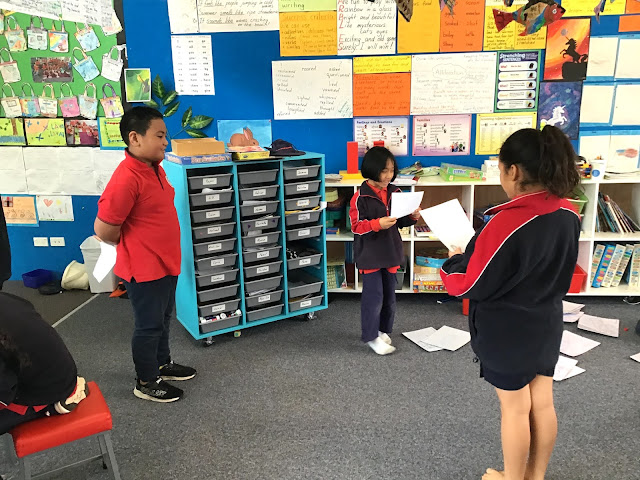Today is our last day of home learning! The students are excited to return back to our wonderful creative classroom.
As a reflection on our remote learning over the last 2 weeks, I'd like to review the most engaging activities that helped me scaffold my students' learning and monitor their progress.
1. Comprehension strategies, oral language and vocabulary
When scaffolding reading, for example, we focused on making inferences. We started with simple questions about prompt pictures, then discussed our assumptions and learnt how to support our thinking with details. When working on texts, we previewed and discussed key vocabulary, chunked the text looking for clues and trying to read between the lines. We used talk moves: add on, waiting time, thumbs up, agree/disagree, etc.
2. Cognitive engagement and critical thinking - Riddles! False or True? Two truths & one lie.
At some stage, I noticed that children started to actively search for clues and we decided to practise our inference skills. Initially, I offered a number of simple riddles for my students to solve. They enjoyed this activity and took initiative by preparing their own riddles for our online classes. They found and read a lot of riddles and jokes trying to select the most tricky ones to share with their classmates. I believe it can be counted as their deep cognitive thinking and engagement. This activity definitely increased their reading mileage too.
My Y2-3 students were keen to make up their own riddles!
3. Questioning and Feedback - Ideas, Grammar, Sentences and Spelling.
Kahoot has always been popular in our class. The students used to play various quizzes that I created. This time, they felt confident enough to create their own Kahoot games. The students took initiative and were motivated to add interest to our online meets. The student-created Kahoots showed good thinking, digital and literacy skills.
I also promoted SMART commenting on peers' blogs. The students enjoyed expressing their opinions and communicating with their friends in a positive manner. I believe that blogging and commenting helped engage learners in good conversations about their learning and experiences.
Room 5 learners are very Smart Learners who know how to leave Smart Digital Footprints and enjoy Smart Digital relationships! Ano te Pai!






















